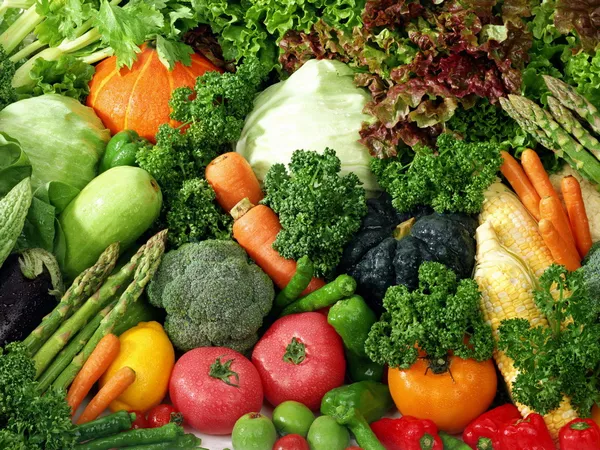Inflammation is a complex biological process involving the immune system’s response to harmful stimuli. Acute inflammation, such as that caused by an injury, is a short-term process that helps the body heal.
Foods rich in antioxidants, omega-3 fatty acids, and other anti-inflammatory compounds can help mitigate the inflammatory process. Conversely, processed foods high in sugars, trans fats, and refined carbohydrates can exacerbate inflammation.
1. Berries
Berries, including strawberries, blueberries, raspberries, and blackberries, are packed with antioxidants, particularly flavonoids and polyphenols. These compounds help neutralize free radicals and reduce oxidative stress, which is closely linked to inflammation. Berries also contain vitamins C and K, which further support immune function and help reduce inflammatory markers.
Health Tip: Add a handful of fresh or frozen berries to your morning yogurt, cereal, or smoothie for a delicious anti-inflammatory boost.
2. Fatty Fish
Fatty fish, such as salmon, mackerel, and sardines, are excellent sources of omega-3 fatty acids. Omega-3s, specifically EPA and DHA, have been shown to reduce inflammation by inhibiting the production of inflammatory cytokines and eicosanoids. Regular consumption of fatty fish can help lower markers of inflammation and support cardiovascular health.
Health Tip: Aim to include fatty fish in your diet at least twice a week. Grilling or baking fish with a sprinkle of herbs and lemon juice makes for a healthy and flavorful meal.
3. Turmeric
Turmeric, a bright yellow spice commonly used in curry, contains curcumin, a potent anti-inflammatory compound. Curcumin works by blocking inflammatory pathways and reducing oxidative stress. Studies suggest that curcumin can be as effective as some anti-inflammatory drugs in reducing symptoms of chronic inflammation.
Health Tip: Incorporate turmeric into your dishes by adding it to soups, stews, or rice. Pairing turmeric with black pepper enhances curcumin absorption.
4. Olive Oil
Extra virgin olive oil is rich in monounsaturated fats and antioxidants, particularly oleocanthal, which has anti-inflammatory properties similar to ibuprofen. Regular use of olive oil can help reduce inflammation and support heart health. Its healthy fat content also promotes overall well-being.
Health Tip: Use extra virgin olive oil as your primary cooking oil. Drizzle it over salads or vegetables for a flavorful and healthful addition.
5. Leafy Greens
Leafy greens like spinach, kale, and Swiss chard are high in vitamins, minerals, and antioxidants. These nutrients, including vitamin K, vitamin C, and various flavonoids, help combat inflammation and support overall health. The fiber content in leafy greens also promotes digestive health, which can further aid in reducing inflammation.
Health Tip: Include a variety of leafy greens in your salads, smoothies, or as a side dish. Lightly sautéing greens with garlic can enhance their flavor and health benefits.
See also: 6 Worst Foods for Inflammation: A Quick Guide
6. Nuts
Nuts, including almonds, walnuts, and cashews, are rich in healthy fats, antioxidants, and anti-inflammatory compounds. They provide omega-3 fatty acids, vitamin E, and polyphenols that help reduce inflammation and support heart health. Regular nut consumption is associated with a lower risk of chronic diseases.
Health Tip: Snack on a small handful of nuts daily or add them to salads, oatmeal, or yogurt. Be mindful of portion sizes to avoid excessive calorie intake.
7. Green Tea
Green tea is renowned for its antioxidant and anti-inflammatory properties, primarily due to its high content of catechins, particularly epigallocatechin gallate (EGCG). EGCG helps reduce inflammation by inhibiting inflammatory enzymes and reducing oxidative stress. Regular consumption of green tea can support immune function and overall health.
Health Tip: Enjoy a cup of green tea in place of sugary beverages. For added benefits, steep the tea for a few minutes to maximize the extraction of beneficial compounds.
8. Tomatoes
Tomatoes are rich in lycopene, an antioxidant with strong anti-inflammatory effects. Lycopene helps reduce inflammation by neutralizing free radicals and modulating inflammatory pathways. Tomatoes also provide vitamins C and E, which contribute to overall immune health.
Health Tip: Incorporate tomatoes into your diet through salads, soups, or sauces. Cooking tomatoes can enhance lycopene absorption, making them even more beneficial.
9. Ginger
Ginger contains gingerol, a bioactive compound with potent anti-inflammatory properties. Gingerol helps reduce inflammation by inhibiting the production of pro-inflammatory cytokines and enzymes. Ginger has been used traditionally for its therapeutic benefits and is effective in managing conditions such as arthritis and digestive inflammation.
Health Tip: Add fresh ginger to your smoothies, teas, or stir-fries. You can also use ginger powder as a spice in various dishes.
10. Avocados
Avocados are rich in monounsaturated fats, antioxidants, and anti-inflammatory compounds such as phytosterols and carotenoids. These nutrients help reduce inflammation and support heart health. Avocados also provide fiber, which aids in digestive health and can help reduce systemic inflammation.
Health Tip: Include avocados in your diet by adding them to salads, sandwiches, or smoothies. Avocado-based dressings or spreads are also a delicious and healthful option.
Conclusion
Incorporating anti-inflammatory foods into your diet can be a powerful strategy for managing and reducing chronic inflammation. Foods such as berries, fatty fish, turmeric, olive oil, leafy greens, nuts, green tea, tomatoes, ginger, and avocados offer a wealth of nutrients and compounds that help combat inflammation and support overall health. By making mindful dietary choices and integrating these foods into your daily routine, you can enhance your well-being and reduce the risk of chronic diseases associated with inflammation.
Related Articles:
What Are the Most Inflammatory Foods to Avoid?
Top 10 Foods That Cause Inflammation & How to Avoid Them
What Are Some Natural Anti Inflammatory Foods?


